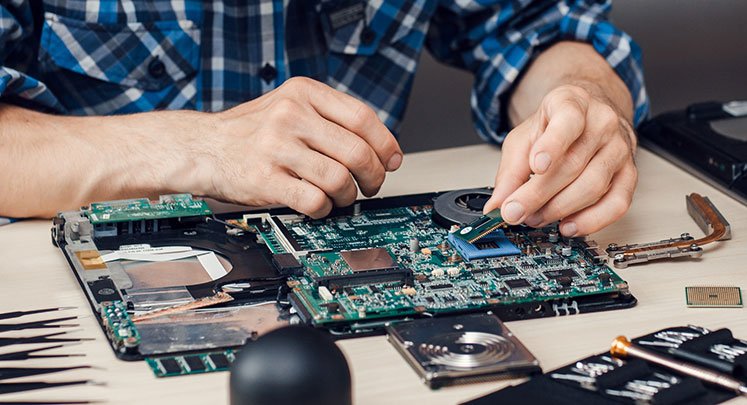Maintaining a computer is an essential task for ensuring that it runs smoothly and lasts for a long time. Unfortunately, many people do not know how to properly maintain their computers, and as a result, they may experience issues such as slow performance, crashes, and even hardware failures. This guide will provide a comprehensive checklist of expert tips to help you keep your device running smoothly and avoid computer repairs.
Regular Maintenance
Regular maintenance of a computer is necessary because it helps ensure the smooth performance and longevity of the device. Without regular maintenance, a computer can experience issues such as slow performance, crashes, and even hardware failures, you can simply follow the below-mentioned tips to regularly maintain your computer.
Keep your computer clean: Dust, hair, and debris can accumulate in your computer over time and cause it to overheat and malfunction. Regularly cleaning the inside of your computer will keep it running smoothly. This includes using compressed air to blow dust out of the vents and fans, cleaning the keyboard, and wiping down the exterior.
Run regular scans and updates: Keeping your computer updated and free of malware is crucial for maintaining its performance and security. Running regular scans for malware and keeping your operating system and other software up to date will fix any known bugs, and security vulnerabilities, and improve overall performance.
Keep an eye on disk space: Running out of disk space can cause your computer to slow down and even crash. Regularly check the amount of free space on your hard drive and delete any unnecessary files or programs.
Uninstall unnecessary programs: Having too many programs running on your computer can slow it down. Uninstall any programs that you no longer use or need to keep your computer running at its best.
Diagnostics and Troubleshooting
Diagnostics and troubleshooting of a computer are necessary to identify and fix computer issues that may arise. These include both software and hardware issues, such as malware, corrupted operating system, or malfunctioning hardware components.
Check for error messages: Many computer problems will display error messages that can give you clues about what is causing the issue. Make sure to take note of any error messages that appear on your screen and research them to find a solution.
ALSO READ: 5 Effective Tips to Avoid Computer Repair Problems
Monitor system resource usage: Keeping an eye on your computer’s system resource usage, such as CPU and memory usage, can help you identify potential issues. You can use built-in tools like the Task Manager on Windows or Activity Monitor on Mac to monitor these resources.
Test hardware: Hardware issues such as a malfunctioning fan or hard drive can cause your computer to malfunction. Running hardware diagnostic tools can help you identify these issues and determine if any hardware components need to be replaced.
Check for overheating: Overheating is a common problem that can cause your computer to malfunction. Keep an eye on the temperature of your computer’s components, such as the CPU and GPU, to ensure that they are not overheating.
Security
Taking care of the security of your computer is essential to ensure the safety of your personal and financial information, as well as the integrity of your data and files, you can follow the below-mentioned tips to secure your computer easily and effectively.
Use protection software: Installing and running protection software such as antivirus, anti-malware, and firewalls will keep your computer safe from known vulnerabilities and threats that can cause your computer to malfunction.
Be careful with email attachments: Malicious attachments in emails can cause serious problems for your computer. Be careful when opening attachments, especially from unknown sources.
Use a strong password: A weak password can leave your computer vulnerable to hacking and other cyber threats. Use a strong, unique password for your computer, and consider using a password manager to keep track of all your passwords.
Conclusion
By following the tips and techniques outlined in this guide, you will be able to keep your computer running smoothly and prevent many common problems from arising. Remember to regularly check for updates and new vulnerabilities, and keep your computer clean and well-maintained. If you encounter any issues that you are unsure how to fix, don’t hesitate to seek professional help or advice from online communities.



